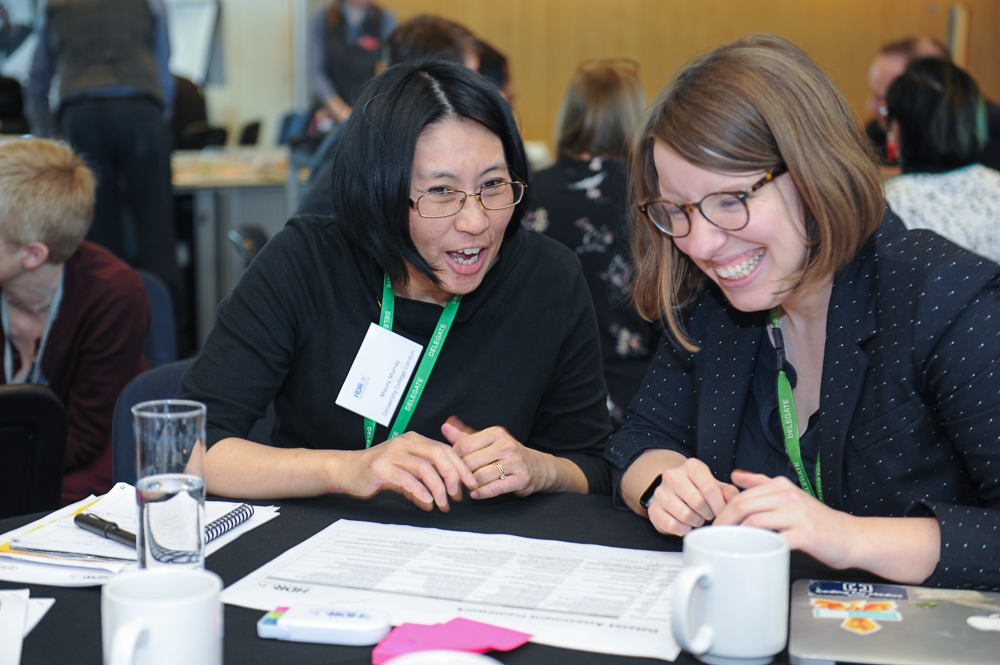Our Open Access Publication of the Month - November 2021
8 November 2021 | Author: Utkarsh Agrawal, Research Fellow in Health Data Science
Investigating severe COVID-19 outcomes after vaccination and tracking development assistance for health and for COVID-19.

In this month’s review of published papers and pre-prints, our Early Career Committee considered dozens of articles made open access. They were ranked against core pillars of the HDR UK ethos: research quality, team science, scale, open science, patient and public involvement, impact and equality, diversity and inclusion. This month the committee chose two winning publications, which were “Tracking development assistance for health and for COVID-19: a review of development assistance, government, out-of-pocket, and other private spending on health for 204 countries and territories, 1990–2050”, by Global Burden of Disease 2020 Health Financing Collaborator Network on behalf of the World Health Organisation (WHO), and “COVID-19 hospital admissions and deaths after BNT162b2 and ChAdOx1 nCoV-19 vaccinations in 2·57 million people in Scotland (EAVE II): a prospective cohort study” by Agrawal et al.
The Global Burden of Disease 2020 Health Financing Collaborator Network tracked the annual spending on health globally. In this study the team estimated the total domestic health spending from 1990 to 2050 and the development assistance for COVID-19 in 2020 for 204 countries. Four key aspects of funding were analysed: government spending, out-of-pocket private spending, prepaid private spending and development assistance. They estimate that the global health spending was around $8·8 trillion (or $1132 per person) in 2019 and this varied depending upon the income-group of the countries. The spending is estimated to rise by 2050 and remain unequally distributed. They also estimated that the development assistance for health for COVID-19 increased by more than 30% in 2020.
Agrawal et al. analysed data from the Early Pandemic Evaluation and Enhanced Surveillance of COVID-19 (EAVE II) national surveillance platform, containing data on 5.4 million people in Scotland – 99% of the entire Scottish population. They aimed to find out how many people experienced hospitalisation or death from COVID-19 after being vaccinated, and to characterise these people. They showed that these outcomes were uncommon in vaccinated populations, therefore supporting the effectiveness of the vaccination rollout in the context of high infection rates. Moreover, they showed that factors known to increase risk of more severe COVID-19 outcomes in unvaccinated populations, such as older age, lower socioeconomic status and comorbidities, were also associated with worse outcomes following vaccination.
The committee scored the financing paper high on team science and scale as it brings together several researchers from across the globe analysing health spending of 204 countries. Similarly, the vaccination paper also scored highly on scale due to the almost-complete coverage of the Scottish population. The committee also highlights the high potential impact of the financing analysis as it contextualises the disparity in health spending, which might be due to different reasons. The EC committee thought it is essential to highlight the message from this study that health inequalities are likely to persist in the future and global pandemic preparedness is essential. The paper by Agrawal et al. also scored highly on impact due to the importance of insights into COVID-19 events in vaccinated populations, and the potential for this research to inform case management and vaccine policy.
Both of these distinct projects represent novel and important work towards understanding the impact of COVID-19 on individuals and health systems. Our Early Career Committee would like to congratulate and commend these teams for their contribution to HDR UK’s vision of uniting the UK’s health data to enable discoveries that improve people’s lives.
Read the full paper – Tracking development assistance for health and for COVID-19
Read the full paper – COVID-19 hospital admissions and deaths after vaccination



